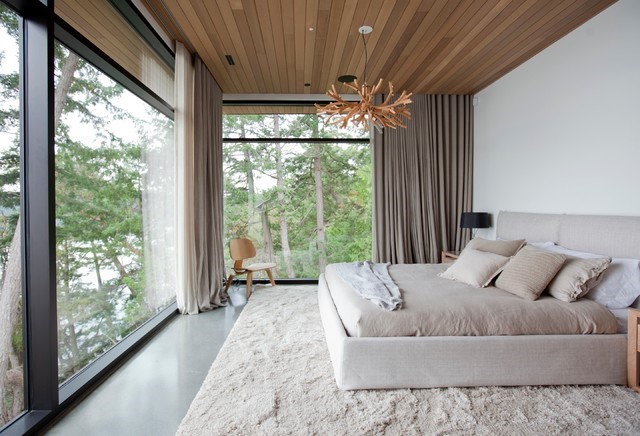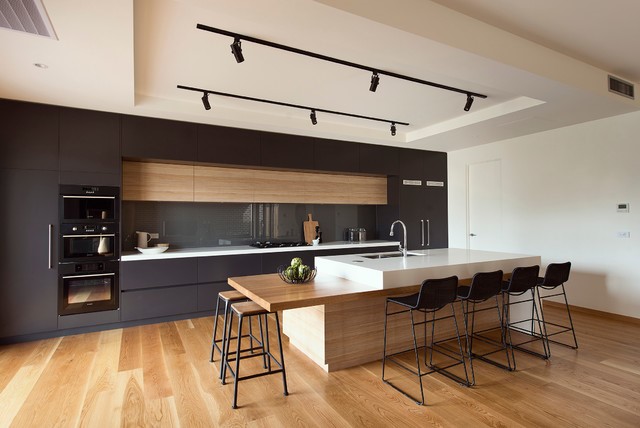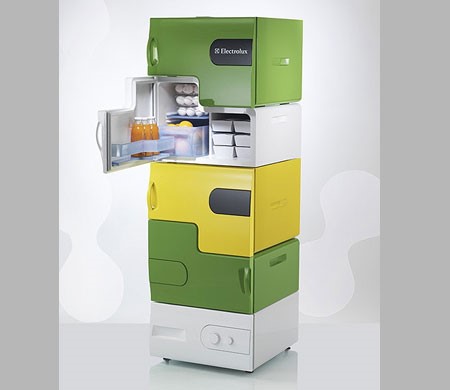Electric bills are getting higher every month and this coupled with the ever-increasing menace of global warming.
To make the task relatively simpler, we have listed out the top 101 tips that you can easily adopt in your daily life.
Those are practical tips that optimize your house energy consumption and reduce monthly electricity bills at an even pace without compromising your way of living.
Let’s get started now.
Living Room

1. Tint your windows
Tinted windows can reflect the external heat so there is lower temperature inside your house. It keeps the house cool and also reduces your air condition cost.
2. Heat reflecting paints
Heat reflecting paints tend to keep off external heat and last longer.
3. Use LED/ LCD TVs
LCE and LED TVs are electronically designed so their wattages are remarkably lesser than Plasma TV sets.
4. Easy to clean, bigger tiles
Smaller tiles take more water because of more spaces between each other. Larger tiles cover more area so they can be cleaned with lesser water.
5. Sweep where possible
Reduce power consumption by using broomsticks rather than vacuum cleaners.
6. Lesser crowded rooms
More furniture and equipment inside a room means lesser air passage. Therefore rooms can become warmer. Keep your rooms free from extra items.
7. Recycle Zone
To keep all the used paper and magazines, make a recycle zone or a basket. You can use this paper later for different purposes.
8. Turn off the WiFi device
When not in use, switch it off and save some watts.
9. Watch TV together
While watching TV together with family has psychological advantages, it also keeps the bills down unlike if the TVs were running in separate rooms.
10. Heat and sound insulation
Lightweight concrete has the tendency to block sound and prevent heat transmission. Hence, you can reduce noise and heat inside your house with light concrete.
Bedroom

11. Put lamps in front of mirrors
Mirrors will reflect more light so it will brighten up the room without a need to use more lamps inside.
12. Use bedside lamps
Bed-side lamps are low power lamps and they are closer to you so they help better during a book reading at night. You can save more energy by not using the larger room lights.
13. Air conditioner with fan
Turn on the fan with the air conditioner. Better ventilation will mean that you reach the desired temperatures quicker which reduce load from your air conditioner saving power.
14. Close the doors for air conditioners
Insulate your room while the air conditioner is on. Close all windows and doors.
15. Use inter-room exhaust fans
Use an exhaust fan to throw air into the other room. In this way, you can pass air-conditioned cooling to several rooms through one air conditioner.
16. Use better home insulation
Make sure that your windows and doors do not leak air. In this way, excessive heat won’t enter your housekeeping it cool.
17. Use fans ahead of ACs
Where possible, use fans instead of Air conditioners to save power.
18. Close the curtains at night
During the night, close the curtains before turning on the Air Conditioner. It helps retain the cold air inside your room keeping the temperature down so your AC doesn’t have to bear much load.
Bathroom/Washroom

19. Less usage of bathtubs
Try to take more showers and lesser bathtubs. It will save precious water. Just keep in mind that people are dying in Africa due to water shortages.
20. Intelligently use toilet flush button
To use minimal water in the toilet, use a smaller flush button for urine and a bigger flush button for pass motion.
21. Turn off the tap while brushing
Turn off the tap while brushing your teeth to save water.
22. Leaking faucets
Fix leakages in the faucets to reduce excessive water drainage.
23. Use buckets for leakages
Until leakages are repaired, store the leaking clean water in buckets or smaller containers.
24. Shorter baths
Shorter baths mean lesser water usage. Also use water intelligently while bathing.
25. Afternoon Shower
During the afternoon, the water is naturally hotter. Hence, you won’t need to turn on the heater that can save a good amount of energy.
26.Toilet Flush
Use minimum flush if you are the only toilet user. You will save a lot of water.
Kitchen

27. Replace gas for heating kettles
Electric kettles have higher wattages as compared to gas heating. Also, there are no risks of electric shocks.
28. Dishwasher saving
Put all plates in the dishwasher once to avoid more cleaning rounds. It will save considerable power.
29. Washing/dryer lint trap
If you clean your washing machine’s lint trap on a frequent basis, it will make the machine run more efficiently.
30. Microwave ahead of ovens
Ovens tend to take too much power as compared to microwaves. So for common operations microwaves are a safer bet.
31. Minimum water boiling
Boil enough water that you wish to use. Excessive water may get wasted.
32. Don’t open the fridge every now and then
Fridges don’t cool efficiently if they are opened every now and then. They need more power as a result to cool things.
33. Let the food cool down before keeping them in the fridge
Hot food will transmit heat inside the fridge, the compressor will work harder. Cool down the food before putting it in the fridge. It will mean lesser load on the fridge and lesser current consumption.
34. Refrigerator door seals
Check for refrigerator door seals if they are broken. It increases the time to cool down food.
35. Pressure cook your food
Pressure cookers prepare food faster so there is lesser heat energy required.
36. Right-sized refrigerator
Makes sure you are not using a bigger than the needed refrigerator. Determine your required capacity and use a suitable refrigerator.
37. Use smaller pots for cooking
Smaller pots cook food quicker. They save valuable heat energy.
38. Use Thermos
To store hot or cold water, use thermos flasks. The temperature is maintained for longer so you don’t require external heating or cooling.
39. Use manual hand beaters
For small portion blending, use hand mixers and beaters instead of electric ones to save power.
40. Use exhaust fans
Exhaust fans can improve ventilation in your house. It can prevent usage of air conditioners to cut down power usage.
41. Rags and Towels instead of tissue papers
To cut down cost, you should use towels and even old clothing instead of tissue papers for table cleaning.
42. Reuse containers
You don’t have to buy a new shampoo bottle or an oil container every time. Consider buying refill pack, the price will be much cheaper.
43. Cook wisely
You should know how much your family eats. Avoid preparing an extra meal that you think will go wasted.
44. Install a water filter
Clean water needs lesser energy to be heated and boiled. We can save more energy on heating and boiling water in the long run.
45. Use exhaust fans in kitchens and bathrooms
To control humidity in the kitchen, get rid of excessive heat through the exhaust fans.
46. Clean air vents
Dirty air vents can cause air blockage and so your room temperature can rise. Clean them regularly to avoid this situation.
47. Clean your Refrigerator
The more stuffed in your fridge is, the greater the load it will take. Clean your fridge from time to time so that unnecessary items are removed regularly.
Laundry

48. Use sun rather than dryers
Instead of using a dryer, dry your clothes in sunlight. This can help you achieve great electricity saving as dryer consume a lot of electricity.
49. Run full loads laundry
To make sure there are minimum laundry rounds, stuff your washing machine with maximum capacity. You will save both water and electricity.
50. Use cold water settings
For dishwashers and clothes washing, use water setting during normal operation to save energy that would be used for heating the water.
51. Iron in normal temperatures
Ironing clothes in air-conditioned rooms take more heating time for your iron. Press your clothes at normal temperature.
52. Dry laundry straight away
If using a dryer is necessary, dry the clothes successively rather than starting the dryer later. It can save you some power.
53. Hang your clothes
To keep your clothes from wrinkling and thereby getting ironed again, hang your clothes on a hanger.
54. Use fewer clothes
Change lesser clothes so that you have lesser clothes to wash. It saves power.
55. Weekly Towel Wash
To save water and electricity, wash your towel on weekly basis rather than daily basis.
56. Laundry settings
Turn your washer settings to small. You will require lesser water for washing just a few clothes.
57. Washing machine size
Know your family size and buy a washing machine accordingly. If you have a small family, a small-sized machine should be good enough. It will reduce your electricity bills quite a bit.
Air Conditioner

58. Air conditioner filters
Clean air conditioner filters allow cooler air to pass through easily. Most AC maintenance technicians tend to clean the filters first before proceeding to any other repairs.
59. Inverter Air Conditioners
These new and smart ACs have start-stop compressors that react to the room temperature. This is why they only work when neede, unlike conventional Air conditioners. It, therefore, costs less while using an inverter AC.
60. Set your air conditioners at 25 degree Celsius
Air conditioners tend to give the best efficiency at 25 degree Celsius. It is because of their thermostat design. Therefore, you will see a visible difference in your electricity bills after adopting this energy saving change.
61. Correct capacity air conditioner
Make sure that your room size fits the air conditioner capacity. For larger rooms, your air conditioner will have to make extra effort to reach desired temperatures.
62. Check air conditioner leakages
Frequently check air conditioner of refrigerant leakages. If the air conditioner is not cold, most probably is due to refrigerant leakages.
63. Clean air conditioner refrigerants
By doing so, the AC will cool down the room quicker and you will save more wattages and money.
64. Wrap air conditioner pipe with a blanket
Using a blanket to wrap your air conditioner pipe prevents it from external heat. Thus reduces down power wattages for cooling.
65. Air conditioner coil cleaning
Clean your air conditioner coils at least a twice a year. You may take professional help if you like but this will prolong your AC’s life.
66. Air conditioner timer sets
Before you sleep, set air conditioner timer, it operates for a certain period of time and then shuts off automatically. It saves your electricity considerably.
Lighting

67. Use of LED lights
Instead of using high power bulbs, LED lights are the great substitute because they consume lesser energy and last longer.
68. Make most of the natural light
Use as much as natural light as possible. Try to finish all your work during the day time to prevent excessive energy wastage in the night.
69. Use dimmers with lights
Lights dimmers allow you to set your desired brightness limit and accordingly reduce the wattages.
70. Turn off extra lights
While not in use, keep the lights off. Ask your children to turn off the lights when leaving the room.
Electronic Gadget

71. Change old electric gadgets
Older electric gadgets tend to have rusted parts which can heat up and consume more electricity. Also, they consume much more than modern electronic gadgets.
72. Iron shirts once a week
Press your shirts in one go and once a week. Electric irons are serious power consumers so you are better off using them economically.
73. Unplug electronic items
Electronic items such as chargers continue to work even when you disconnect your mobile devices. Therefore, you should always unplug them from the socket when not in use.
74. Avoid overcharging
Overcharging tends to damage your battery causing it to consume a more electric charge. Charge till 95% and then unplug.
75. Laptops instead of Desktops
Desktops have bigger power supplies which consume more power. Laptops are a better option, therefore.
76. Put laptops to sleeping modes
When you are idle or away, put your laptops to sleeping mode to conserve power.
77. Be Brand conscious
Being brand conscious is important when buying electrical and electrical items. They last longer and save money in the longer run.
78. Use earphones
To reduce noise pollution in your house, use earphones while watching TV or listening to music alone.
79. Turn off your TV
When no one’s in the room, turn off your TV.
80. Turn down the volume
Listen to the music in low volume to reduce noise pollution.
81. Buy efficient electronic items
Always compare different electronic devices before buying. Initially, efficient devices may cost you more but they are cost friendly in the longer run.
82. Use mobile phones at lower brightness
By doing so, you will have more battery time and lesser energy consumption, therefore.
83. Clean suction pumps
When suction pumps run smoothly, they consume lesser power. Clean them frequently.
84. Online Newspaper
Instead of buying a newspaper which you know you won’t read completely, read the important news online. It will save paper and money both.
85. Online bill payments
To reduce paper wastage and your time and energy queuing up, pay all your bills online.
86. Use stabilizers
Stabilizers prolong your electrical equipment life by saving them from abrupt power changes.
87. Electrical devices shut off
When you are on a long vacation or holiday, turn off all your electrical appliances such as your fridge, TV etc. before you leave the house.
Miscellaneous

88. Solar panels
Using solar panels instead of grid supply can reduce your electricity bills quite a bit.
89. Use recycled newspaper
To wrap food and other portable things, use newspaper instead of expensive packaging.
90. Use solar energy
Make the most of sunlight and store solar energy in batteries for night usage. You will get back your solar energy investment within 3 years.
91. Insulated roofs
Use insulated coatings on your roof to keep the inside cool.
92. Less paper Usage
Try using mobile devices rather than paper for daily home and office tasks. By this, you are also saving trees.
93. Use bicycles
Use a bicycle for grocery shopping. Other than saving fuel, this give you a chance to exercise more.
94. Go for weekly shopping
Avoid frequent trips to the market on your motorbike or car. Purchase items in bulk and in one go to reduce fuel consumption.
95. Used water for plants
Used water from washing clothes can be used for watering plants.
96. Use rainwater tanks
Rainwater tanks can help you store the valuable amount of water especially if you live in rainy climatic regions.
97. Proofread printing material
Before printing, make sure that your material is free of errors. It will keep you from reprinting and will save both printer ink and energy.
98. Trees are a gift
Plant trees outside your house to give you shade and keep the temperature down during the day time.
99. Arrange daytime parties
This will save considerable power as you use natural light.
100. Use disposable items for parties
Disposable items don’t need cleaning so they are great for small parties and celebrations.
101. Physical exercise
Play with your children to keep them from watching TV. It’s a win-win situation for both you and your children.
You Might Also Like:
1) 31 Do’s For Home Renovation
2) 7 Latest House Renovation Trends in Malaysia
3) 10 Do’s and Don’ts of House Renovation
4) 81 Simple Renovation Tips To Transform Your House Into A Designer Masterpiece
5) 5 Signs to Look For: Does Our House Need Renovation?




